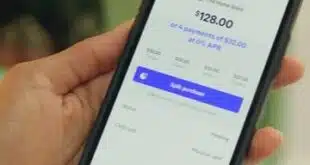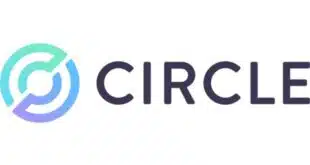Across the world, governments are cracking down on immigration. Cross-border payments, however, continue to grow with the global economy. Will blockchain be next?
President Donald Trump has made cracking down on both illegal and legal immigration to the United States a showpiece, though controversial, policy of his administration. European countries, too, are attempting to stem the flow of migrants from the Middle East and Africa.
But while governments in the U.S., Europe, and elsewhere try to reduce immigration, the flow of cross-border payments remains unabated. London-based cross-border payments provider PPRO Group, which recently opened a U.S. office in Atlanta, estimates in a recent research report that U.S. cross-border e-commerce grew 25% in the past year to $104 billion. By 2021, the processor predicts volume will nearly double to $203 billion.
Much of the predicted growth could come from wallflower merchants finally deciding to sell abroad. Only 36% of all U.S. merchants currently sell cross-border, PPRO estimates. At the same time, consumers have a growing number of online options to send money from the U.S. to family and friends in other countries.
This ever-increasing payment flow presents new revenue opportunities for payments providers, and it also opens the way for disruptors to challenge the establishment. This is happening even though cross-border payments are more complicated and expensive than domestic payments because of government regulations and the cost of ensuring that money gets safely from one country to its intended recipient in another.
The obstacles haven’t stopped payments providers, who see the cross-border market as a huge, untapped market (“A World To Conquer,” October 2017). Indeed, cross-border transactions and revenues constitute one of the fastest-growing segments in electronic payments.
While Mastercard Inc. and Visa Inc. report cross-border or international revenues, neither discloses actual payment amounts. But Mastercard says cross-border volume grew 19% year-over-year in the second quarter on a local-currency basis, beating the 15% and 12% growth rates in 2017 and 2016, respectively.
Much of the recent growth came from Europe, chief financial officer Martina Hund-Mejean told stock analysts in July. Third-quarter data were unavailable at press time.
Visa says its cross-border volumes were up 10% on a constant-currency basis in its third quarter of fiscal 2018 ended June 30. Visa and Mastercard work with banks and other partners to develop the cross-border payments segment.
“Cross-border remittances is a large, attractive market that currently has a lot of friction for people receiving funds,” Visa chief executive Alfred F. Kelly Jr. said on the company’s July 25 earnings call with analysts.
‘Price, Speed, Ease of Use’
Reducing that friction is the focus of a tide of recent announcements by payments players about new cross-border partnerships and services.
Some of the new blockchain-based startups are especially active. The promise of blockchain and the cryptocurrencies that ride on the decentralized, distributed-ledger technology is that the middleman is eliminated, thereby making cross-border payments cheaper and smoother than payments through card networks, wire transfers, and automated clearing house systems.
So far, however, the upstarts haven’t come anywhere near overthrowing the incumbents in either consumer-to-consumer or business-to-business cross-border payments. And at least one, San Francisco-based Ripple Labs Inc., is pursuing a strategy of partnering with banks and other established payments providers such as American Express Co. to offer new cross-border services for certain customer niches.
For example, a year ago AmEx’s FX International Payments (FXIP) unit introduced a blockchain-based cross-border B2B service with Ripple and the United Kingdom operation of Spain’s Banco Santander. The new service enables non-card payments to be routed through Ripple’s real-time payment network, RippleNet.
Initially, Ripple is connecting AmEx customers to Santander in the U.K. to provide what an AmEx spokesperson says are instant, trackable, cross-border payments.
The spokesperson would not provide transaction or other usage details, but says in an email that “compared with traditional payment processes, blockchain-enabled payments improve international transactions by simplifying connections with intermediaries and providing immediate end-to-end visibility into the transaction status and cost.”
Ripple did not make an executive available for this story, but a spokesperson says the company is now active in 40 countries.
Ripple is perhaps best known for its cryptocurrency, XRP, which Ripple calls a “digital asset” that facilitates the transfer of value across borders. Ripple’s version of blockchain, or distributed-ledger, technology is different from those underlying Bitcoin and other digital currencies, and Ripple claims it’s faster and uses less computing power.
The company’s other products for cross-border payments include xCurrent for messaging and settlement, xRapid for liquidity management, and xVia for standardizing connections between payment networks.
One of the newest of Ripple’s 100-plus financial-institution and payment-processor partners is Plano, Texas-based Catalyst Corporate Federal Credit Union, a wholesale institution for 1,400 credit unions. Catalyst Corporate announced in October that it would test Ripple’s blockchain system initially to solve problems credit unions and their members face with international wires.
The first area for testing will be payments from the U.S. to Mexico, one of the highest-volume remittance corridors in the world—estimated by the Spanish bank BBVA at $26 billion in 2016.
“The traditional international wire experience fails to meet today’s expectations from a price, speed, and ease-of-use perspective,” Brad Ganey, Catalyst Corporate’s chief operating officer, said in a news release.
“Blockchain technology, and specifically Ripple’s xRapid product, resolves all three of these challenges simultaneously. Through our subsidiary companies’ technology platforms, Catalyst Corporate will leverage XRP—through xRapid—to test the instant transfer of money across borders on behalf of our member credit unions,” Ganey said.
Strange Bedfellows
As blockchain-based providers establish a foothold in cross-border payments, AmEx’s chief rivals are ramping up their own offerings.
Visa announced two years ago that it was developing a blockchain-based service it calls B2B Connect for financial institutions to process high-value payments. The service still is not ready for full-scale rollout, but Kelly said on the July call that it’s coming along.
“We are starting by focusing on high-value cross-border transactions, which we view to be one of the largest single pain points in B2B payments today,” he said. “We’re addressing this with our B2B Connect solution. We are now in pilot and are on track to expand the availability of B2B Connect in the first half of calendar year 2019.”
Mastercard is recruiting banks to use Mastercard Send, a near-real-time push-payment service linking debit card accounts, as their platform for cross-border payments. Chief executive Ajay Banga said on the company’s second-quarter earnings call that while banks have tended to focus on large transactions in cross-border payments, there is untapped opportunity pursuing smaller transactions.
“There is a great deal of space in the relatively smaller cross-border B2B space, which is inefficient both in terms of the scaling, authorizing, and settlement times involved, but also relatively inefficient in terms of the data that is exchanged at the point of payment,” he said, according to a SeekingAlpha.com transcript.
As they develop new services for the cross-border market, payments providers are entering into some seemingly unusual pair-ups. The Western Union Co., the world’s largest wire-transfer firm, a year ago said it would use Mastercard Send for some transactions.
And Visa announced in July that Western Union rival MoneyGram International Inc. would use the Visa Direct service, a push-payment service similar to Mastercard Send, for some cross-border payments. The first corridors to use the service are U.S. to Mexico and U.S. to the Philippines, another one of the world’s biggest remittance corridors.
Pricing Pressure
In recent years, the rise of online money-transfer firms, a group that includes but is not limited to TransferWise, Remitly, and Xoom (the latter of which PayPal Holdings Inc. bought in 2015 for $890 million) has helped to push costs down.
In its latest annual report on remittance and migration trends, the World Bank in April said the global average cost to send $200 was 7.1% of the amount sent in the first quarter, down from 7.5% a year earlier. Costs vary widely by geography, from a low of 5.2% in South Asia to 9.4% in Sub-Saharan Africa.
Costs still remain well above the 3% benchmark the World Bank calls its Sustainable Development Goal. This is because of de-risking measures taken by many banks and exclusive relationships between national postal systems and a single money-transfer operator, which limit competition.
Nonetheless, the entrance of new firms has put pressure on the older agent-based competitors such as Western Union, MoneyGram, and Euronet Worldwide Inc.’s Ria.
“There’s a lot of interest” in the money-transfer market nowadays, says Eric Grover, a consultant who keeps close tabs on international payment trends as principal of Minden, Nev.-based Intrepid Ventures. “There are a bunch of [new players], and they all kind of have this notion that they’re cheaper than the traditional guys—sometimes true, sometimes not true.”
In response, the agent-based players are rapidly expanding their online offerings and pairing up with other payments companies for new services.
Englewood, Colo.-based Western Union, for example, in late August said it was taking Western Union Digital, the fastest-growing part of the company—second-quarter revenues rose 22% year-over-year—to Mexico, Malaysia, Singapore, and the United Arab Emirates.
Western Union Digital already was live in numerous nations outside of North America, and the company said it plans to get the service to 200 nations and territories “in the next few years.”
In October, Western Union announced a high-value account-to-account money-transfer service based in the U.K. that will allow British consumers to send up to £50,000 ($65,000) from their smart phones through wu.com or Western Union’s mobile app directly into bank accounts in more than 70 countries.
Western Union early this year revealed it was testing Ripple’s xRapid product, but in a June interview with Fortune magazine, chief executive Hikmet Ersek said it wasn’t lowering his costs. Ripple responded that there had been too few transactions to draw conclusions.
Consultant Grover calls himself a skeptic about using blockchain for cross-border payments. Some may accuse Western Union and MoneyGram of “kind of lumbering along, pricing slowly eroding,” he says, but they do have what few blockchain and some online providers don’t have—regulatory-compliance operations tailored for every country in which they operate.
“The big guys, they’ve got compliance in every relevant corridor,” says Grover. “That’s a huge deal. Nobody would suggest it’s going to become less of a deal.”
‘The Putative Dinosaurs’
Grover says many newer online firms got their starts in Europe, a relatively low-cost market for cross-border payments. “As they get more global, their cost structures are going to look a little more like the incumbents, the putative dinosaurs, Western Union and MoneyGram,” he says.
Meanwhile, in another example of new and old cross-border players pairing up when they see mutual advantage, Xoom in August said it would enter 60 more countries and expand in 26 more under a deal with Ria.
The pact enables Xoom payment recipients to pick up cash transfers from senders, most of whom are in the U.S., at 150,000 Ria locations. The largest of the new countries is Russia, but the deal also brings Xoom into a number of countries in Africa, Asia, and Eastern Europe for the first time.
Going into 2019, the lesson for the old-timers and upstarts alike seems to be that success depends on being a little like me, a little like you.





